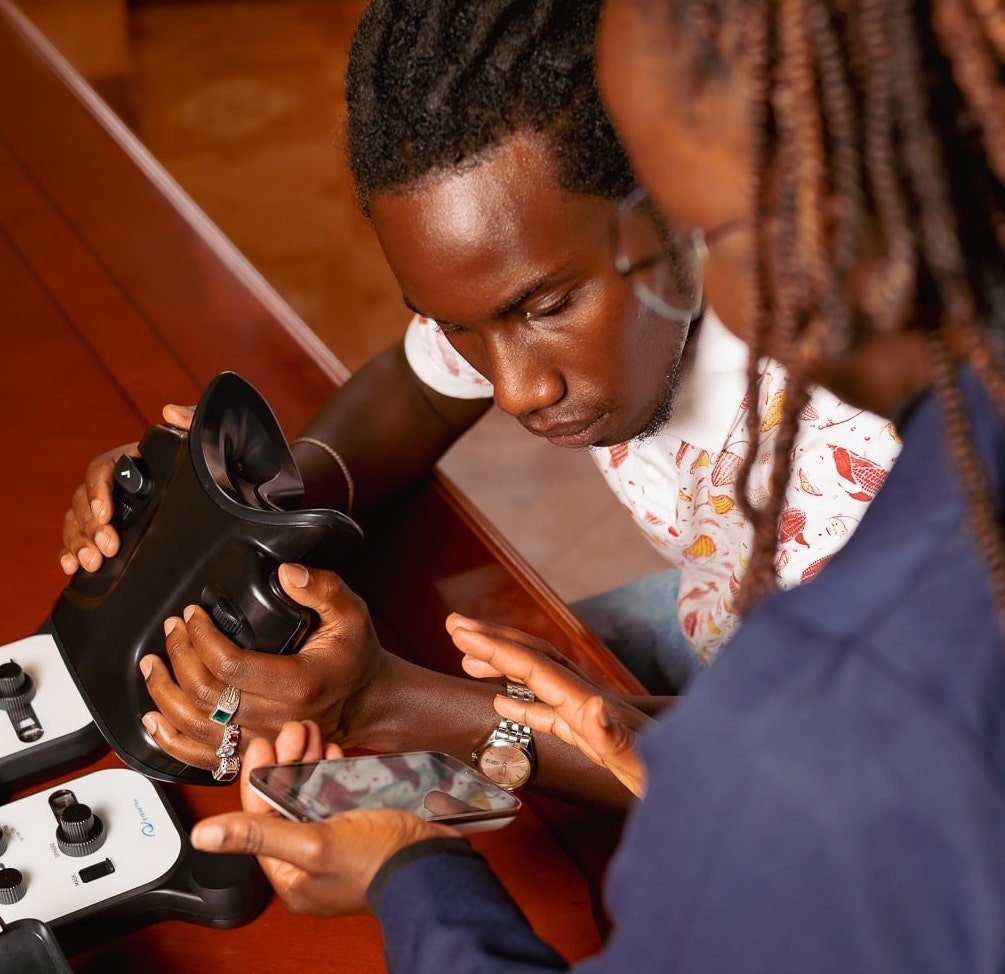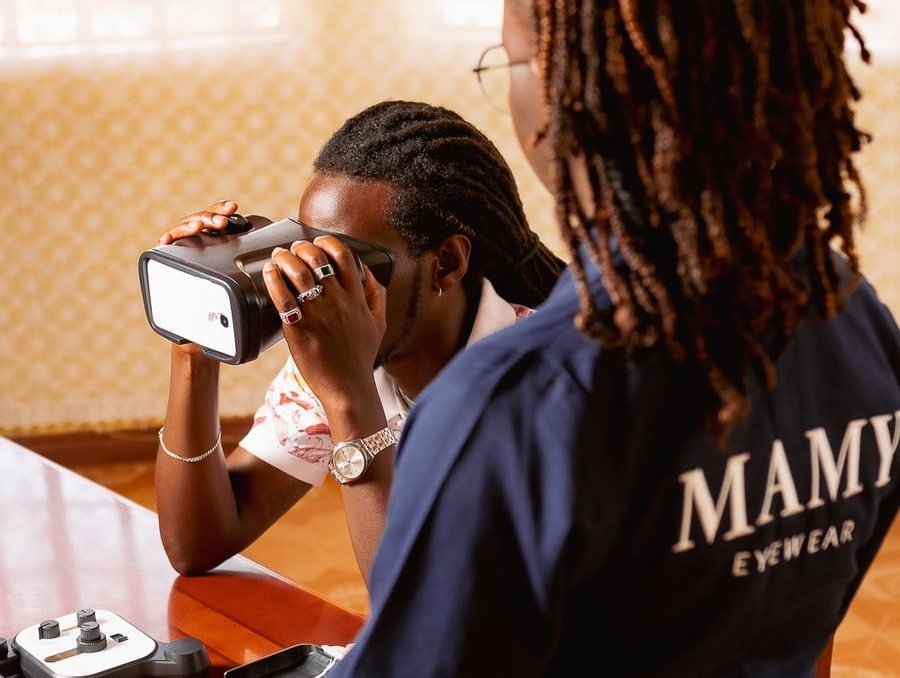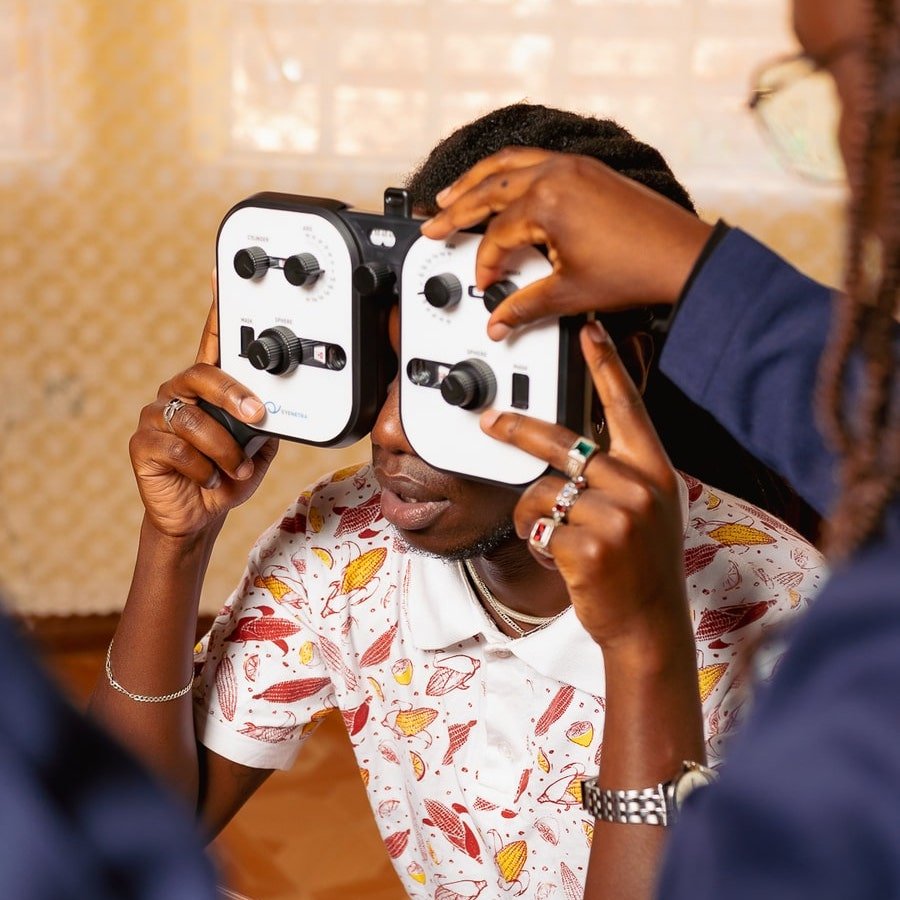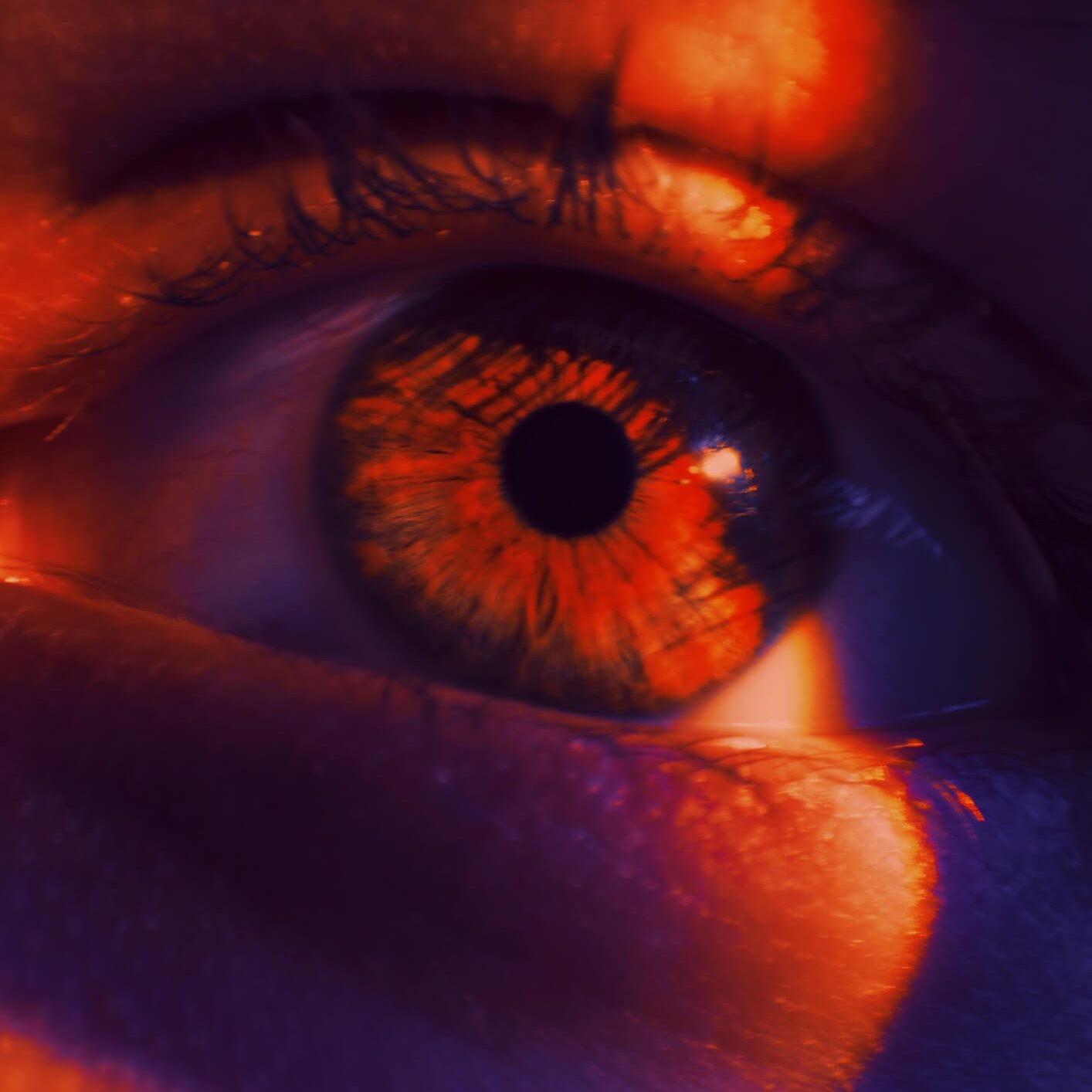What is an eye test?

A comprehensive eye exam consists of a series of simple tests to evaluate how well you can see and to identify any problems that might be affecting the overall health of your eyes.
Your eye problems should be detected at their earliest stage — when they are most treatable.
Our optometrists use top-notch portable machines, allowing them to be mobile and to come to you in order to check your eyesight. They use the exact same technology as any other optician (autorefractor, phoropter, lensometer… as well as the classic visual acuity chart), providing you with the highest quality vision care.
It’s free (yes, really free!) and it only takes about 20 minutes — no longer than your usual coffee break.
Everyone should have their eyes tested regularly.
Even if you don’t wear glasses and you feel your sight is perfect, we recommend you to have your eyes tested at least once every couple of years.
Eyes change with time, and it’s important to monitor what’s going on with yours. So whether you are due for a check-up or experiencing discomfort, we are happy to help!


What to expect during your eye test.
- First things first, the optometrist needs to understand your story, so he’ll ask you a bunch of questions: what symptoms you might be experiencing, general information about your eye health as well as overall health and family history, what are your specific needs…
- If you’re already wearing glasses, he’ll measure how well you can see with your current prescription.
Then, your visual acuity will be measured in two different ways.
- Refraction assessment: the optometrist will shine a light into your eyes to evaluate its movement when reflected by your retina back through your pupil. That will assess whether or not you have a refractive error (namely myopia, hyperopia, astigmatism or presbyopia).
- Subjective visual acuity test: you’ll have to focus on an eye chart and read what you can see aloud while several lenses are exchanged in front of your eyes to assess how well you perform in each situation.
After that, the optometrist will perform another series of small tests to measure your eye pressure and make sure that your eyes are healthy.
According to the results of the exam, the optometrist will let you know the different options to improve the quality and comfort of your eyesight, and together you will find the best solution, tailored specifically to your needs.
Now, if you're not due for a check-up soon, here are some indications that you should still book an appointment with our optometrists now.
